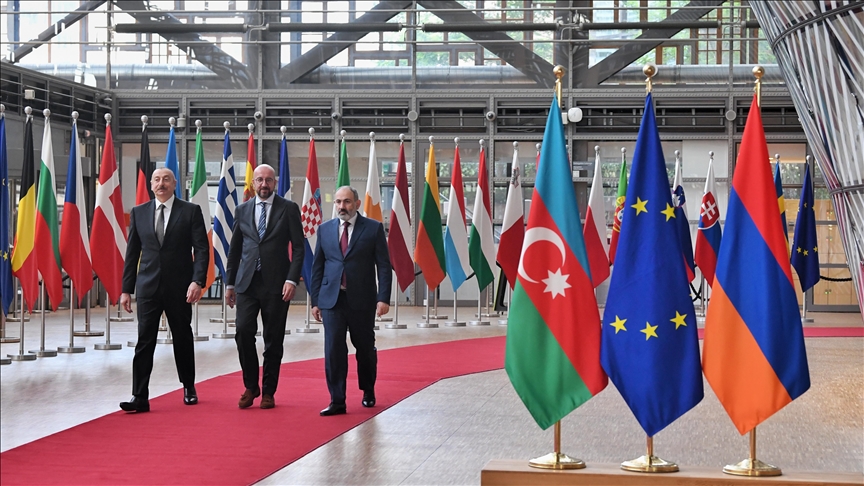
Mohsen Pakaeen told the Strategic Council on Foreign Relations that one of the good and important events to ensure security and stability in the South Caucasus was the initial agreement between the Republic of Azerbaijan and Armenia to pursue peace talks.
He added that the fact that these two countries decided not to depend on extraregional mediators to achieve stability and peace in this region was a positive step. Now, they are looking for the right time to sign the final document.
He continued that, of course, the emergence of verbal challenges between the two countries that have been at war for more than 20 years and have claims on each other’s borders is normal, but this does not mean a conflict and war between these two countries in the South Caucasus. They are not seeking the violation of the agreement reached so far.
The former ambassador of our country to the Republic of Azerbaijan, referring to some interventionist positions of the European Union and European countries about the developments between Baku and Yerevan, noted that some countries and powers are upset with the establishment of peace in the South Caucasus, including the European Union and among these countries, France has had more destructive movements than other countries. In the framework of competition with Russia and to isolate this country in the South Caucasus, the European Union is trying to interfere in this region and strengthen its presence; therefore, it is trying to show itself as a friend of Armenia and has taken positions in opposition to the Republic of Azerbaijan to weaken the basis of the peace that is about to take place.
Emphasizing that the European Union is neither a friend of Azerbaijan nor Armenia, this expert on international issues said that they seek to isolate Russia in the Caucasus, and this action is a continuation of the war in Ukraine.
Pakaeen further referred to the destructive role of France in the developments of the South Caucasus and said that France, which is an important member of the European Union and is very dissatisfied with the peace in the Caucasus, is one of the main drivers of the union in opposition to the Republic of Azerbaijan. These oppositions aim to isolate Russia, which has played an effective role in peace in the Caucasus. On the other hand, considering the significant presence of Armenians in France, the government of this country is under pressure to support Armenians through the Armenian lobby. Basically, by selling weapons to Armenia, highlighting this action, and holding some exercises with Armenia, France is causing problems in the establishment of peace and security in the South Caucasus.
The former ambassador of our country to Baku said that it seems that the Republic of Azerbaijan and Armenia know the value of the peace that has been created. Despite the verbal challenges, they are aware of the hidden policies of the European Union and France. Therefore, it should be hoped that these two countries will maintain their vigilance on this issue and establish constructive interactions. If there is a dispute, it is better to resolve it peacefully and through negotiation.
He emphasized that there are border disputes between different countries, and it is necessary for the border commissions of the two countries to negotiate with each other more, determine the border points based on international criteria and standards, and move towards cooperation.
Pakaeen said “cooperation” is preferable to “competition” in the South Caucasus, especially non-constructive competition. The presence of both countries in the 3+3 meeting in Tehran showed that the parties were willing to cooperate. The wisdom of Armenia and the Republic of Azerbaijan is particularly important in this direction.
This international affairs expert stated about the influence of Iran and Russia on resolving the remaining disputes between Baku and Yerevan: I believe that Iran and Russia should continue their contacts with these two countries to resolve the disputes fully and with diplomatic measures and constructive efforts to bring Baku’s positions closer and Yerevan to try to neutralize the non-constructive goals of France and the European Union. After the 3+3 meeting, it is felt that the diplomatic activities of Iran and Russia in the Caucasus have decreased; in my opinion, it is necessary to continue these actions and visits and to hold the 3+3 meeting in Istanbul as soon as possible. The more the cooperation between the Republic of Azerbaijan and Armenia increases, the more hope there is for stable and permanent peace in the South Caucasus.

No comments:
Post a Comment